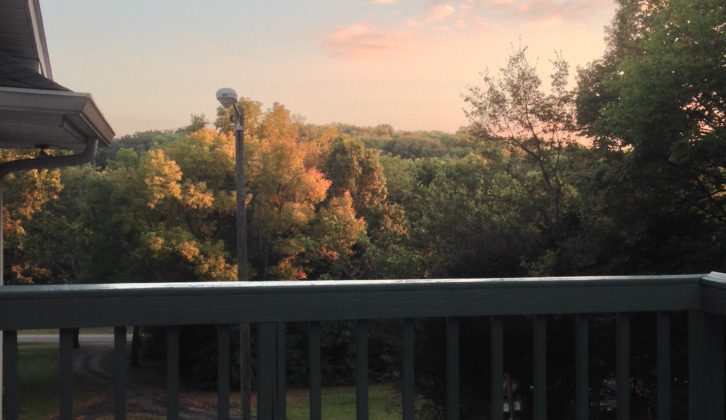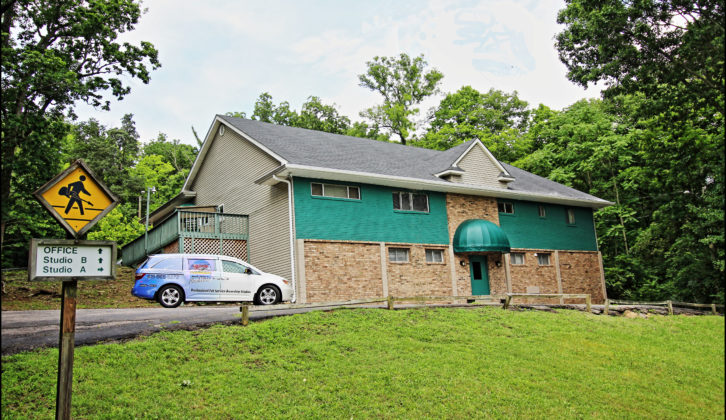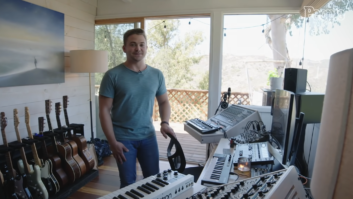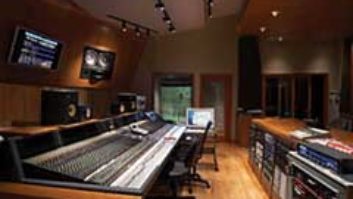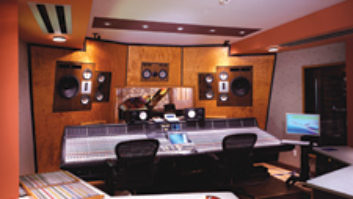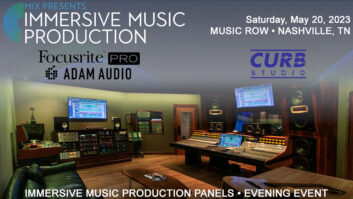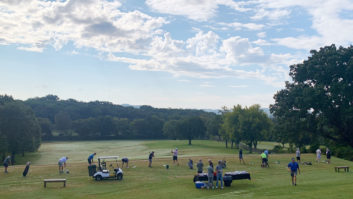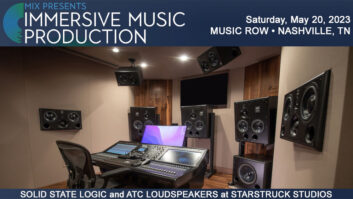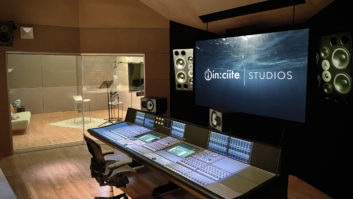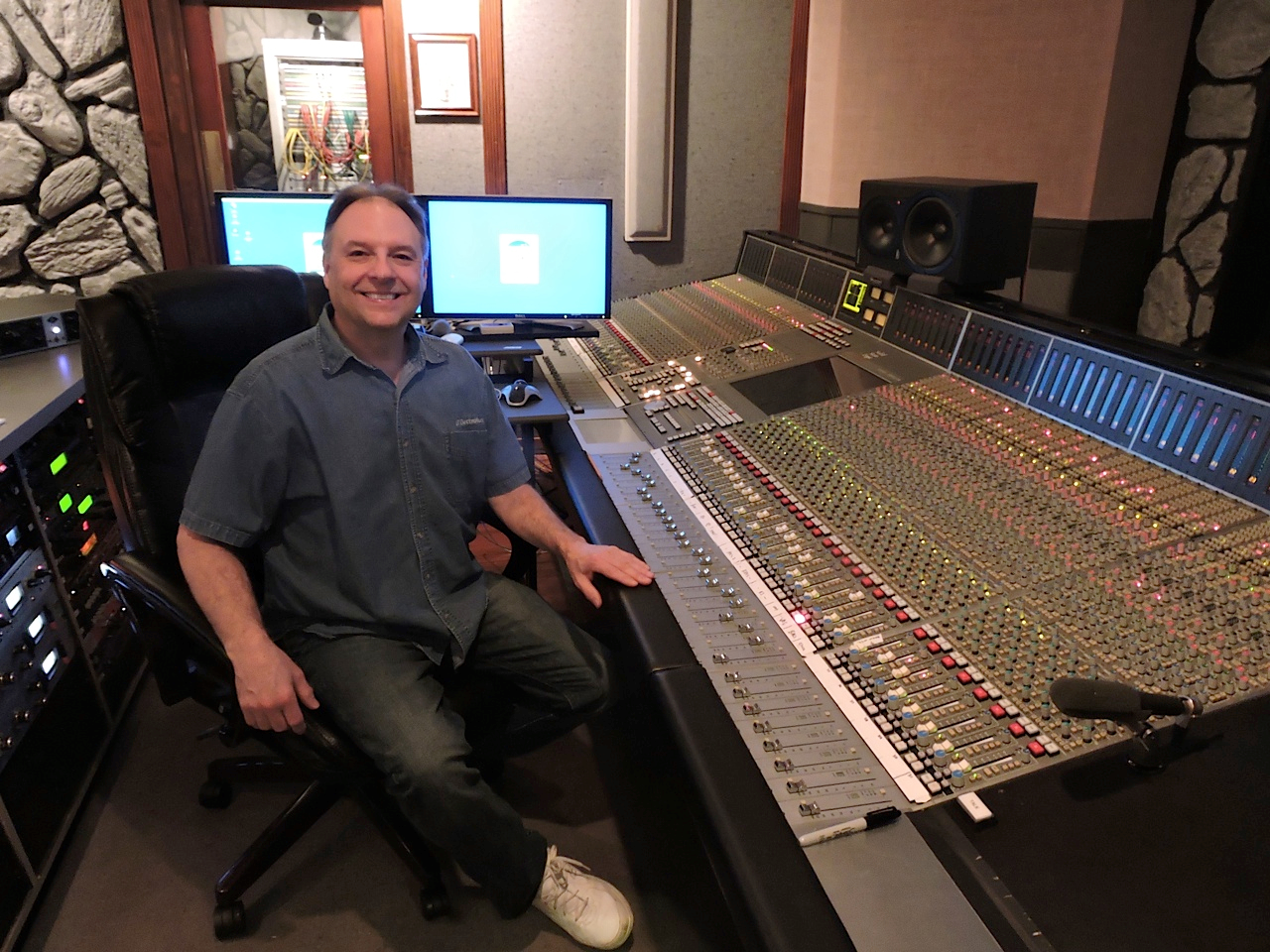
For more than a decade now, cranes have dominated the skyline and condos have been popping up downtown and all over the outlying city districts, from Vanderbilt to Berry Hill. People have grown tired of complaining about traffic, whether on I-65, merging onto 24, or simply driving surface streets to pick up the kids before heading back to an early evening session. Fancy restaurants have moved in, with a cosmopolitan feel that can sometimes border on the awkward. Nashville has become a Big City. All that is true.
But not really… At it’s heart, Nashville is still a Small Town, with a Small Town Vibe, a place where people know each other. That’s especially true in the recording industry, where the relationships among artists, labels, players, producers and engineers can extend decades into the past. Even longer.
Back in 1963, Jack Linnemann, a budding engineer with a good ear and a taste for independence, stepped off of Music Row and built Hilltop Studios, about three-and-a-half miles away, on the near-northeast side of town. He had three acres of land, a book full of contacts, and he wanted a studio of his own, designed from the ground up to work the way he liked to work. The technology was changing, and he was way ahead of his time.
There weren’t a lot of producer/engineer-owned studios back then. Very few. Yes, there were big changes taking place with the advent of multitrack tape and early, manufacturer-made consoles, but the majority of the work still took place in established (often label-owned), relatively straight-laced, radio-style facilities with DIY consoles and custom monitors assembled from components. Lab coats were real. Commercial studios were emerging. Independent studios were rare.
Linnemann helped design the space, then built his own console with rotary knobs, then picked up a very, very early of a Bill Putnam UA board, and he established himself as a man of honesty, integrity and quality sound. He was heavily involved early, a little less so later, and then in 1980 hired a young engineer named John Nicholson, based on a single meeting. Nicholson has been there ever since. The times and trends have come and gone, but the mission has never changed.
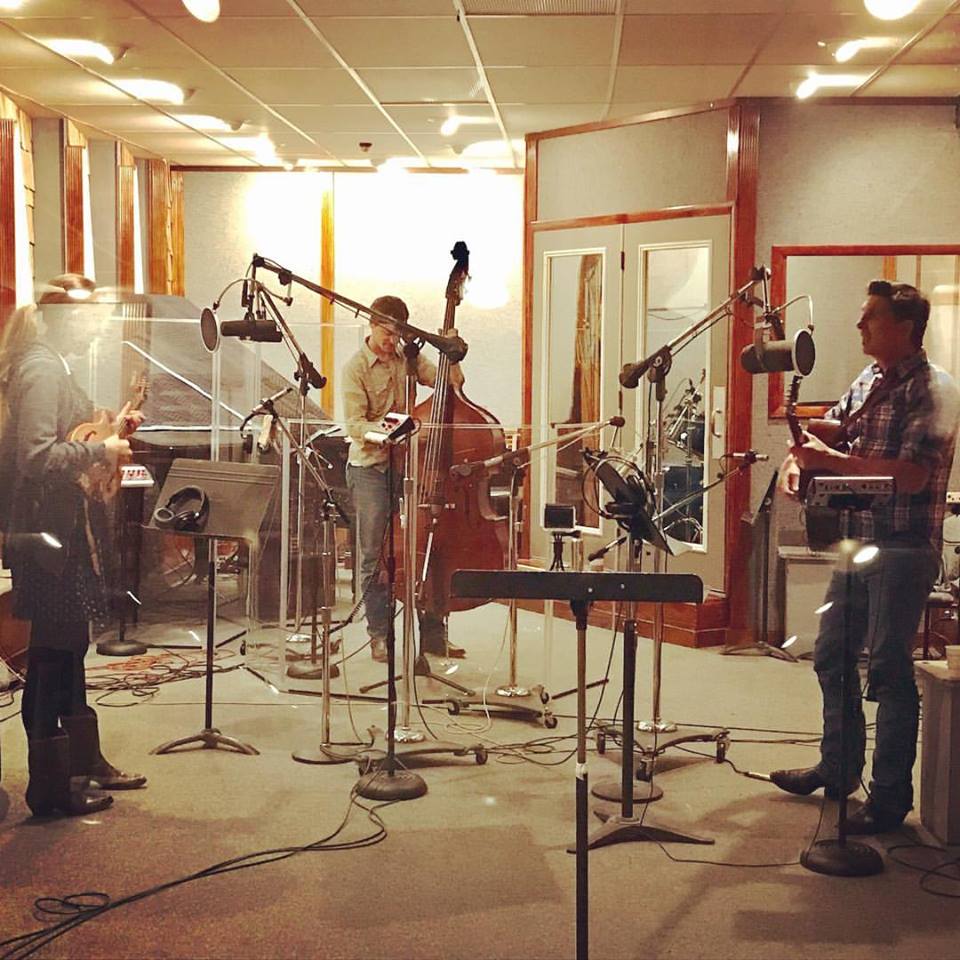
“My first job in a studio was at Hilltop, and except for a short time of disc cutting at Woodland in the mid-1980s, I’ve been here my whole adult life,” Nicholson says with a warm, comforting, rolling tone. “And it’s funny how it happened. I come from this small town, Cornwall, about 100 miles south of Nashville. I had been a drummer, playing in bar bands and all that, but I found that I was more interested in how things sounded than I was in drumming. So I decided to head up to the city. I was naïve, didn’t know anybody, but I just thought that this was what I was going to do.
”So I go to this little fly by night audio school that came through Nashville in the ‘70s and ‘80s, figuring that I needed to learn what they were going to teach me,” he continues. “Six weeks to be an engineer, about eight of us in the first class. I head out with my diploma, or certificate, and my awesome education. I ‘m a small town kid, don’t know nothing, so I get the phone book out and start calling a few recording studios and ask if they need an engineer. I’m real polite and I give them an easy out.
“Well, I do this six or seven times, and then I call Hilltop Studios, because that’s where my finger landed, and Jack Linnemann answers the phone. I do my thing and say, ‘Hey, do you need an engineer? I just got this degree…’ And he says, ‘You know what, I think we could use some extra help.’ I go out and meet with Jack and we hit it off and talk about electronics, drumming and whatever. And he hires me that day. What’s funny is that I thought he hired me because I went to this awesome six-week recording school. And he said, ‘You know, I’m going to hire you, and I’m not going to hold your resume against you.’ (laughs). And I’ve been here ever since.”
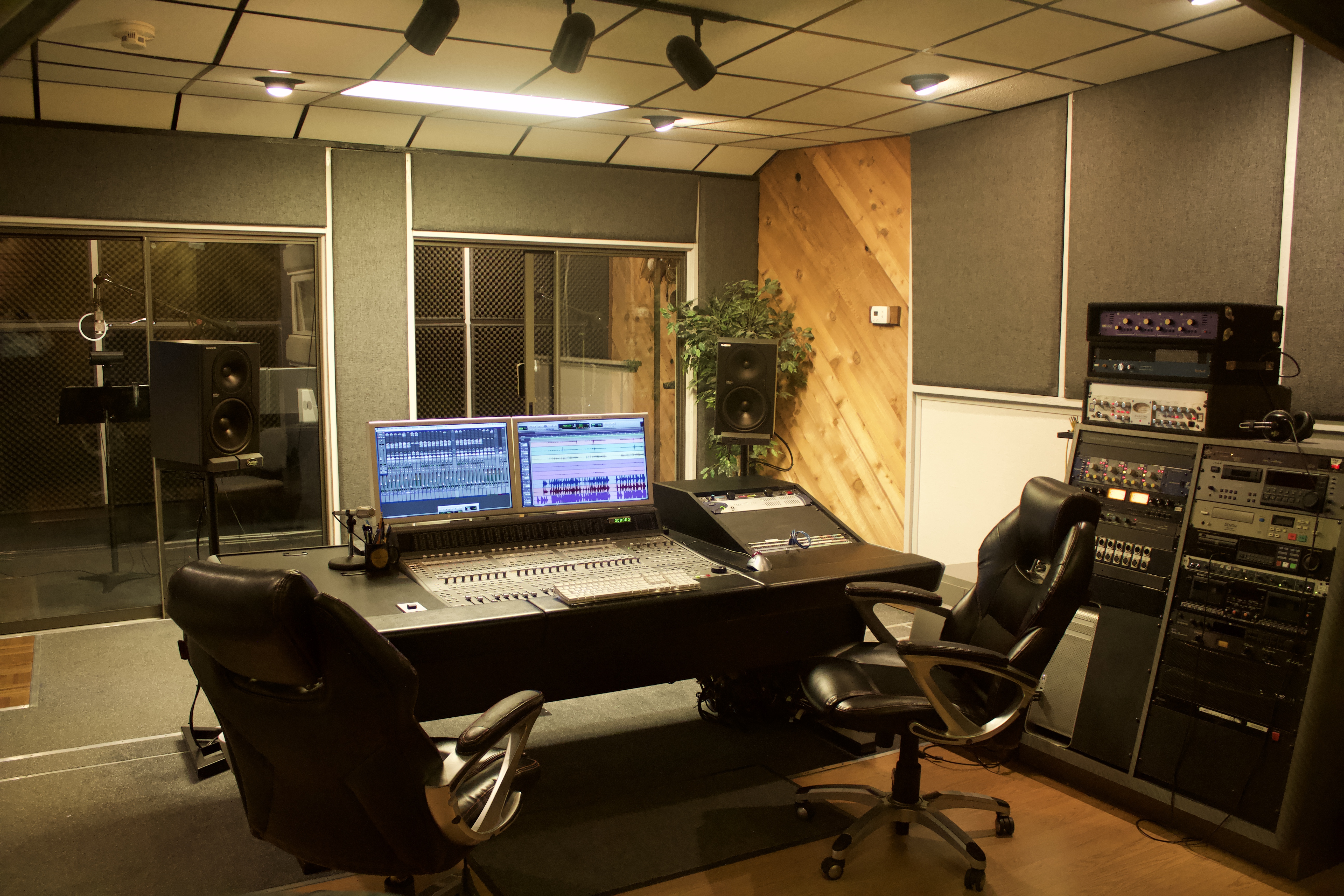
While Nicholson has been there ever since, it has been in a few different capacities. After the first five years as an assistant engineer, a disc cutter on the studio’s lathe, and then engineering sessions, he left for a year to cut lacquers at Woodland Studios under the tutelage of the late, great Denny Purcell, just before the latter left to open Georgetown Masters. Within a year he was called back by a new studio manager at hilltop to be chief engineer.
Then in the mid-1990s he bought the property from Linnemann and implemented some upgrades, to keep up with the technological changes sweeping through the industry. He became a full-fledged producer, working on big records at times, but concentrating on the independent artists. It’s the studio’s bread and butter, and it always has been. In 2012 he sold the business to Virginia Dreams LLC, though he has stayed on as chief engineer. It’s his home. He loves making music. He says that he still “can’t wait for tomorrow’s session.”
“The nature of recording in Nashville has never really changed,” Nicholson says. “It’s always been a bunch of guys out in a studio playing as a band, off of each other, with real instruments, through a console, with a real engineer. The method is identical today to how they did it in the past. The business has changed, and the bookings have changed, but what we do is still the same. At Hilltop, we just try to make a very comfortable situation for an artist, whether they’re new to the studio or not. A comfortable situation in the studio makes for a better record.”
Hilltop Studios was founded on the basis of making records, of delivering a radio-ready sound no matter the budget. In the beginning, Linnemann , an electronics wizard, according to Nicholson, built his own consoles. He was also an early Universal Audio dealer and had one of the very early Bill Putnam designs, rotary knobs and all. The studio has seen every analog format come and go. They’ve owned APIs, a Neve 8232 and a V1.
The view from the deck.
Image Courtesy Hilltop Studios
The entrance to Hilltop Studios.
Image Courtesy Hilltop Studios
Now the A room boasts a 56-channel SSL 9k, purchased from Chung King in New York, while the overdub B room is based around an Avid C24 controller. Hilltop has every type of outboard gear and microphone you might imagine in a studio of 56 years, and they’ve kept them all.
“We’re not on Music Row; we’re in Madison, the north suburbs,” Nicholson says. “Four acres, sort of countryside. We don’t try to be more than what we are. We never really played the game. We’ve done our fair share of big records, but the independent artist has always been our bread and butter. I wish I had the money to buy a bunch of U47s, but we have everything it takes to make a good record. And new artists usually find that out when we have a song pretty much dialed in in the first 30 minutes. Sounding like a good ol’ country record.”
Good ol’ country records. While he has worked and recorded every trend, taste and genre to come through Nashville over 39 years, and while he’s done his fair share of gospel and bluegrass, Nicholson’s love of recording “good ol’ country music” is apparent in his voice.
“We wouldn’t be Nashville without the players,” he says. “It’s a unique situation in the way we approach recording music with these musicians. How we read music. Your typical Nashville tracking session with all these pickers, it’s all free form. Nashville is so rich in talented musicians. If I want to hire a guitar player or a drummer, they’re the ones playing on the biggest records. If a new artist calls me, I can say, “Hey, I’m gonna have Brent Mason play on your record,’ and they freak out. ‘You mean, the Brent Mason…’
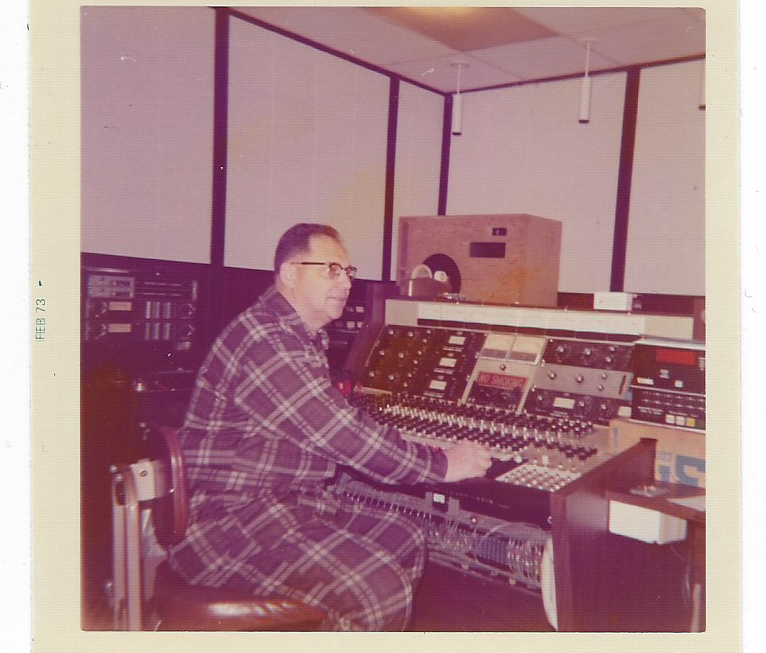
“Honestly, I love the traditional country record, what we called ‘country’ back in the day,” he adds. “Maybe Pig Robbins in the room, Sonny Garrett on steel. Sometimes we get to do a real country record. And I go ahhhhh.”
The industry has certainly changed, and Hilltop has, too. The bookings aren’t the same as the heyday, but the goal remains the same. An honest record, an affordable price, guaranteed quality. Today, Matt Huitt helps to run things, much as Nicholson once did, and is seemingly more than an assistant engineer; he’s now part of the family. Clients are comfortable when he takes over a session, and he’s engineering on his own.
There’s also a side business called Tape2Wav, where those long-out-of-date analog machines have proven handy as a transfer medium. Also, for the past three years, Nicholson has found himself on the road, mixing live sound for legendary singer-songwriter Whisperin’ Bill Anderson. Nothing has slowed down.
“Artists still need to make records, and they need to come to town to make a great one,” Nicholson concludes. “Home studios are here, and the labels are diminishing, We don’t do as much as we used to, but we sure do love what we do.”
